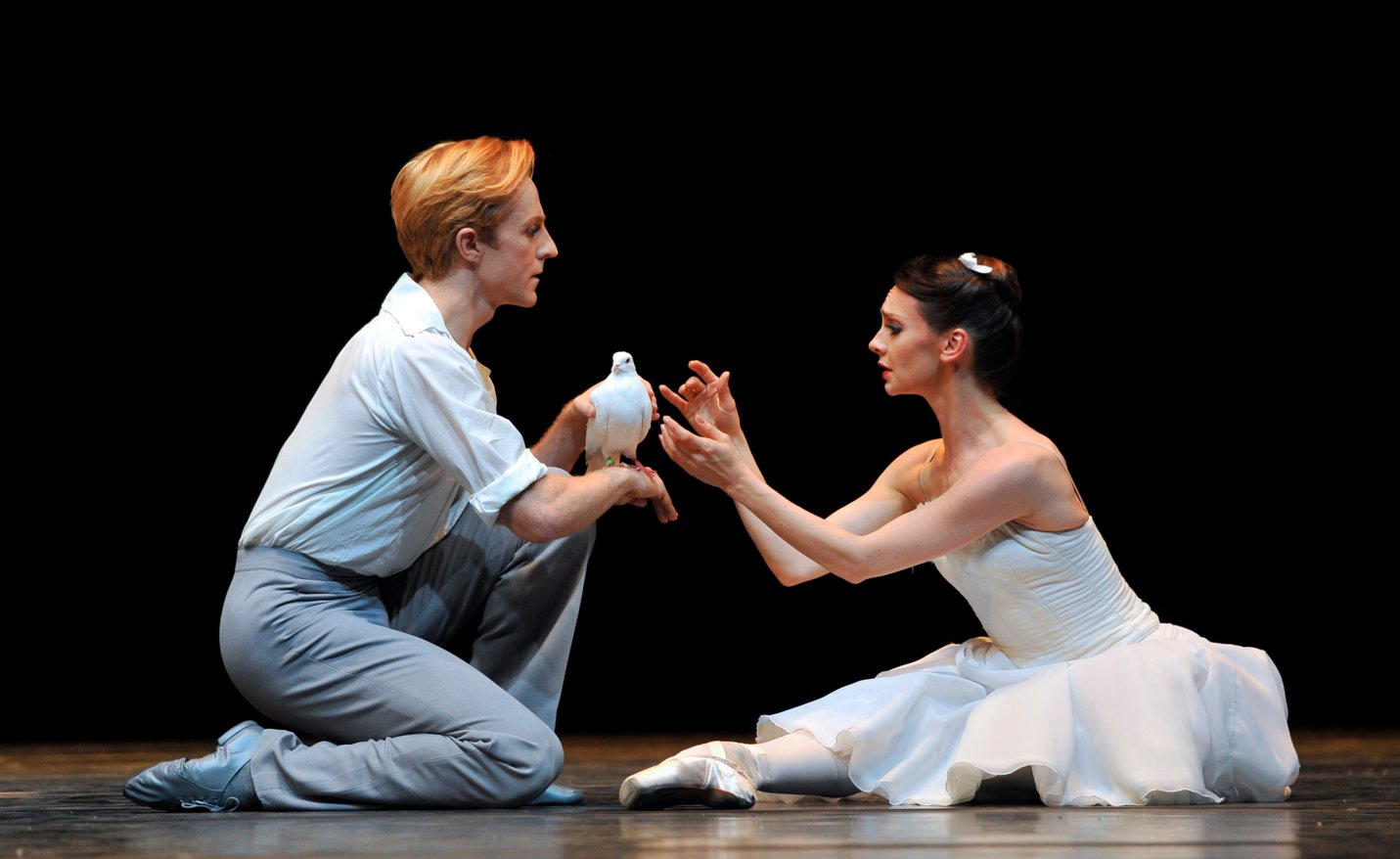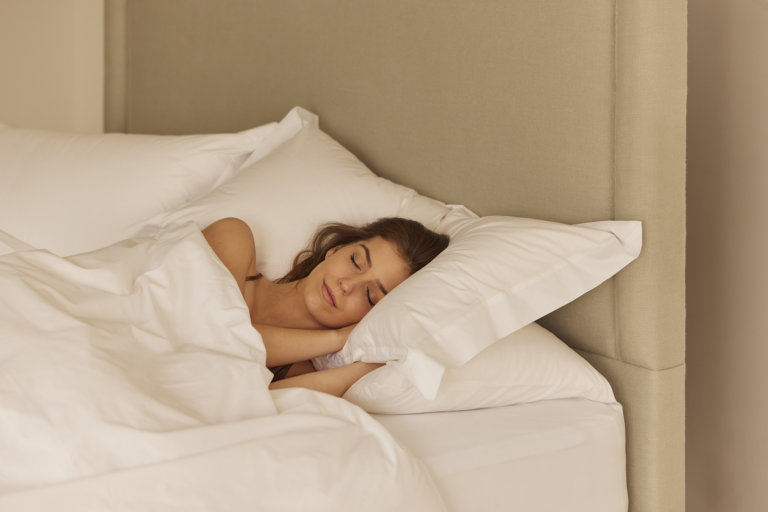The impact of sleep on performance with The Royal Ballet
Join us in a conversation with Gregor Rosenkranz of The Royal Ballet, as we discover the impact of sleep on performance, well-being and recovery.

This month The Royal Ballet is back on stage. We talk to Gregor Rosenkranz – Strength & Conditioning Coach at The Royal Ballet about training during the lockdown, the impact of sleep on performance, and how they have prepared dancers for getting back on stage.
What impact does sleep have on a professional ballet dancer’s performance, physically and mentally?
Sleep deprivation can have an impact on various aspects of a dancer’s performance, both during rehearsals and performances. This includes decreased reaction time and alertness, impaired concentration, impaired memory and learning, decreased neuroendocrine and immune function, pain perception and inflammation among others. This will lead to an overall decrease in performance quality.
What sleep advice is given to professional ballet dancers to ensure peak performance?
Our recommendation to dancers is at least 8 hours of good quality sleep to ensure the benefits of recovery. Studies performed on athletes show that even 10-12 hours of sleep would be beneficial. Yet, due to the busy schedule (late performances, early class) of professional dancers, this might not be feasible in this context. Therefore, it is important to have good sleep hygiene, ensure sleeping and waking times are consistent, with no light-emitting screens (phone, tablet, computer, tv) at least 30 minutes before going to bed, having a dark room with a cool environment (~18°C) and avoiding caffeine and other stimulants prior to sleep.

During the lockdown our dancers were provided with a great number of live sessions
What advice was given to the dancers during lockdown to ensure they stay in peak fitness?
During the lockdown our dancers were provided with a great number of live sessions (Pilates, Yoga, Strength & Conditioning, and Ballet class) every week, utilizing tools at hand. On top of that our dancers were given various individual programmes to facilitate cardiovascular adaptation and continuous loading. Injured dancers, just like they have in-house, had specifically tailored rehabilitation programmes personally delivered to them. In addition, a very kind supporter of The Royal Ballet arranged for all of the dancers to have a piece of dance vinyl sent to their homes enabling the dancers to train at home with greater ease.
Our recommendation to dancers is at least 8 hours of good quality sleep to ensure the benefits of recovery. Studies performed on athletes show that even 10-12 hours of sleep would be beneficial.
When the Royal Opera House opens its doors once again, how will the dancers prepare to perform on stage again?
Since we are back in the building, we are now working on getting our dancers ready for The Royal Ballet’s first performance in 7 months as a full Company.
The dancers are also taking daily Ballet Classes, rehearsals and cross-training like tailored strength and conditioning sessions. Unfortunately, the dancers’ schedule won’t allow them to sleep for much longer once we are fully back. Again, due to a high training load, our recommendation here is at least 8 hours of good quality sleep whenever possible. If 8 hours are not possible, we recommend up to a 30-minute-long nap throughout the day as long as they are not later than mid-afternoon in order not to interfere with the routine sleep time.
A ballet dancer may experience post-performance adrenaline; how can this affect their sleep?
One aspect to look at might be their circadian rhythm. Dancers adapt to their daily schedules. So, telling them to go to bed when they are not tired won’t result in an increase in sleep duration. It would probably have negative effects due to forced desynchrony and fear of missing valuable hours of sleep due to wakefulness. If adrenaline is higher post-performance, strategies like progressive muscle relaxation, mindfulness/meditation or reading can help them to wind down before going to bed.

Sleep is one of the important components that ensure ballet dancers’ well-being
To be a professional ballet dancer is extremely physical and there must be fundamental components that ensure their well-being. What are these components?
Overall it is about finding a balance between work and recovery. If we look at recovery strategies that allow dancers to perform on an elite level for a long time, then we have a couple of different tools at hand. Some of them can be implemented by the dancers themselves, others might need extra support from our healthcare team. But for me the most important ones are in this order:
1. Sleep
2. Hydration
Only if those three are met then we can think about other recovery strategies like compression garments, massage, contrast baths, further nutritional strategies, and so forth. Sleep is the key factor to aid recovery and performance.

During injuries of dancers, the amount of sleep will be increased for recovery.
Do you alter the suggested sleep regime for those recovering from an injury?
During injuries where dancers are not able to dance, we have the chance to increase the amount of sleep. Just like a recommended increase in energy intake during the rehabilitation phase sleep performance can have a beneficial impact as well.
Is the sleep advice/ direction you give professional dancers different from any other professional athletes or sports people?
Not necessarily. Ballet is a physically unbelievably demanding job. We can see dancers as elite performing artists dancing up to 8 hours a day, 6 days a week. Therefore the recommendations are the same as for other professional athletes. At least 8 hours of good quality sleep if possible, even more than that (10-12h).
How would your advice differ for experienced amateurs? For example, those preparing for a marathon, etc.
Not substantially. Whether professional or not, the higher the level of performance, the more important the need for recovery is. On a professional level, we might be lucky enough to structure days more efficiently and schedule in a way to allow more time for sleep. An experienced amateur marathon runner might struggle more to balance a full-time job, family & friends, training, and still be able to sleep for at least 8 hours.
In the autumn of last year, Savoir launched a new advertising campaign featuring world-class ballet dancers from The Royal Ballet in London. Principal dancer, Steven McRae, and soloist, Elizabeth Harrod. To discover more about this campaign explore our piece, ‘A Life Unhurried’.
